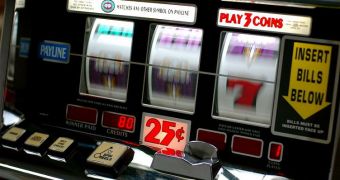Gambling addictions are some of the most common forms of the disorders, and they affect a relatively large proportion of the general population. But researchers have always been puzzled as to why precisely do hardcore gamblers continue to play their games even if they keep on losing, and in circumstances that would make others simply get up and leave. A new series of investigations seems to suggest that these individuals experience an exaggerated, faulty activation in a region of their cortices that deals with handling rewards.
This can take on several forms. The most common is very simple, and it could easily be classified as a case of people leading themselves on. In this case, gamblers do not perceive instances in which they almost won as failures, but rather as “near misses.” In other words, they sort of look at a failure as if it was a near win. This allows their own minds to justify continuing to play the game, even when all the money is gone, and that person is already in debt. The reason why this interpretation is faulty is because there is no such thing as a near miss. Mistakes are the same when it comes to gambling, given that the final result is still a loss, regardless of how you look at it.
“We know that all drugs of abuse target the dopamine system and that mechanism is thought to be crucial for the addictive properties of these drugs. [The finding] strengthens the links between problem gambling and drug addiction,” explains University of Cambridge expert and study researcher Luke Clark. The recent investigation seems to lend additional credence to previously-stated ideas, that gambling targets the same mechanisms of the human brain as chemical addictions to drugs. Again, the key element here is the neurotransmitter dopamine, which gets released in “near miss” instances.
“Subjects who had more symptoms of problem gambling, gambling debts, family conflicts about gambling […] showed a stronger response to near misses that was in a part of the brain that we know is very rich in dopamine,” the team leader reveals. The new study “suggests that a form of cognitive therapy where we try and identify these beliefs about near misses and encourage the gambler to interpret these near misses in a more accurate way, that may be useful technique in psychotherapy. Drugs that target the dopamine system and aim to dampen these dopamine responses may be effective in treating problem gambling,” the expert tells LiveScience.

 14 DAY TRIAL //
14 DAY TRIAL //